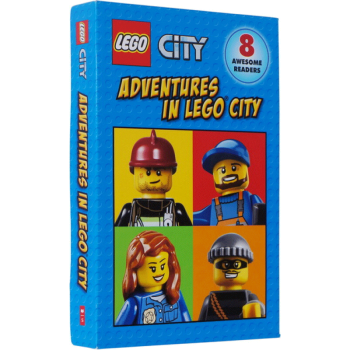![Warm Bodies 温暖的尸体 [平装]](https://pic.tinynews.org/19262190/rBEIC0_XEdoIAAAAAAA1Fzg7fwoAAAlwgIvOMcAADUv322.jpg)

具体描述
编辑推荐
一场末日浩劫后的未来,神秘的病毒毁灭了文明,受害者丧失过去的记忆,变身为吃活人的僵尸,幸存的人类建立起坚固的高墙堡垒,以防止饥饿的僵尸们,成群结队闯进来猎食…。然而,这种看似传统活尸片的背景设定,却因男主角R的出现而颠覆一切!R是个没有记忆、心跳的僵尸,却怀抱着许多梦想,他的内心世界充满惊奇与渴望。某日R正在猎食人类时,竟然煞到了一位温暖、灿烂的活生生女孩茱莉,R不但没吃掉她的脑袋,还决定救她一命,让她免于遭受R的僵尸同伴吞噬。 对原本形如槁木死灰的R而言,茱莉的出现,简直是苍灰阴郁中一抹奔放艳丽的色彩。于是一段紧张而又异常温柔的甜蜜关系就此展开。
R悄悄把茱莉带回他称为家的地方,即一座满布僵尸的机场,并让她躲在一架废弃的767波音客机上,里面有他到处搜集而来的“宝藏”,包括黑胶唱片、雪景水晶球、乐器等。接下来的几天,他们在这个隐匿处意外地共度了惬意的日子,在不知不觉之中,活泼的茱莉唤起R遗忘已久的人性情感,而她也开始了解到他不只是个慢动作、眼神呆滞的行尸走肉。
茱莉很困惑自己对于R的感情,于是带着复杂情绪返回人类城市。她父亲是无情的僵尸猎人,领导人类大军捍卫他们仅存的高墙家园。同时,害相思病的R开始产生前所未有的改变,他相信自己与茱莉的相知相惜能够拯救无论是生是死的人类,不过他出现在她家门口时,很快就掀起活人和僵尸(以及皮包骨)之间的全面性混战,而这也威胁到这一对奇迹恋人未来能否在一起的可贵机会。
这种事从没发生过,不但不合逻辑,也违背了规矩,不但改变了R,也改变他的僵尸同伴,甚至让死气沉沉的世界出现了生机。然而,在那阴森腐败的世界里,想要完成梦想,他们还需要一场革命……
内容简介
R is a young man with an existential crisis--he is a zombie. He shuffles through an America destroyed by war, social collapse, and the mindless hunger of his undead comrades, but he craves something more than blood and brains. He can speak just a few grunted syllables, but his inner life is deep, full of wonder and longing. He has no memories, noidentity, and no pulse, but he has dreams.After experiencing a teenage boy's memories while consuming his brain, R makes an unexpected choice that begins a tense, awkward, and stragely sweet relationship with the victim's human girlfriend. Julie is a blast of color in the otherwise dreary and gray landscape that surrounds R. His decision to protect her will transform not only R, but his fellow Dead, and perhaps their whole lifeless world.
Scary, funny, and surprisingly poignant, Warm Bodies is about being alive, being dead, and the blurry line in between.
《温暖的尸体》讲述了一个叫做“R”的僵尸和一个他杀死的人类的女友之间的浪漫关系,这段关系引发了连锁反应,不仅改变了他和他的僵尸伙伴,也改变了整个僵尸世界。
作者简介
Isaac Marion was born near Seattle in 1981 and has lived in and around that city ever since. Deciding to forgo college in favor of direct experience, he dived into writing while still in high school and self-published three terrible novels before finally hitting his stride with Warm Bodies, his first published work. He currently splits his time between writing in Seattle and hunting inspiration on cross-country RV trips. Visit IsaacMarion.com.精彩书评
“I never thought I could care so passionately for a zombie. Isaac Marion has created the most unexpected romantic lead I've ever encountered, and rewritten the entire concept of what it means to be a zombie in the process. This story stayed with me long after I was done reading it. I eagerly await the next book by Isaac Marion.”(Stephenie Meyer, #1 New York Times Bestselling author of the Twilight series)
“A mesmerising evolution of a classic contemporary myth.”
(Simon Pegg, New York Times bestselling author of Nerd Do Well)
“Warm Bodies is a terrific book—a compelling literary fantasy which is also a strange and affecting pop-culture parable.”
(Nick Harkaway, author of The Gone-Away World)
“Isaac Marion has a great new voice that hooks you from page one and accomplishes the impossible: it makes you care about young zombie love. Warm Bodies is a terrific read.”
(Josh Bazell, New York Times bestselling author of Beat the Reaper)
“Enormous fun.”
(Marie Claire (UK))
“Wryly playful, cinematic, and ultimately moving.”
(Time Out London)
“Has there been a more sympathetic monster since Frankenstein's?”
(The Financial Times)
“It’s got the boarded-up strongholds and mob mentality of Night of the Living Dead—but also romance. As the evil thing resists its evil nature, the book neuters zombies in the same way Stephanie Meyer did vampires.”
(Time Out NY)
“If you haven't caught on to Isaac Marion's writing yet, you're really missing out.”
(About.com)
“In elegant, evocative prose, Marion has fashioned the world’s most unlikely romance in a story that is by turns harrowing, poignant, and tender. At the last, the reader is reminded that we are all ultimately human, whether living or dead. Utterly charming.”
(Library Journal (starred review))
前言/序言
I AM DEAD, but it’s not so bad. I’ve learned to live with it. I’m sorry I can’t properly introduce myself, but I don’t have a name anymore. Hardly any of us do. We lose them like car keys, forget them like anniversaries. Mine might have started with an “R,” but that’s all I have now. It’s funny because back when I was alive, I was always forgetting other people’s names. My friend “M” says the irony of being a zombie is that everything is funny, but you can’t smile, because your lips have rotted off.None of us are particularly attractive, but death has been kinder to me than some. I’m still in the early stages of decay. Just the gray skin, the unpleasant smell, the dark circles under my eyes. I could almost pass for a Living man in need of a vacation. Before I became a zombie I must have been a businessman, a banker or broker or some young temp learning the ropes, because I’m wearing fairly nice clothes. Black slacks, gray shirt, red tie. M makes fun of me sometimes. He points at my tie and tries to laugh, a choked, gurgling rumble deep in his gut. His clothes are holey jeans and a plain white T-shirt. The shirt is looking pretty macabre by now. He should have picked a darker color.
We like to joke and speculate about our clothes, since these final fashion choices are the only indication of who we were before we became no one. Some are less obvious than mine: shorts and a sweater, skirt and a blouse. So we make random guesses.
You were a waitress. You were a student. Ring any bells?
It never does.
No one I know has any specific memories. Just a vague, vestigial knowledge of a world long gone. Faint impressions of past lives that linger like phantom limbs. We recognize civilization—buildings, cars, a general overview—but we have no personal role in it. No history. We are just here. We do what we do, time passes, and no one asks questions. But like I’ve said, it’s not so bad. We may appear mindless, but we aren’t. The rusty cogs of cogency still spin, just geared down and down till the outer motion is barely visible. We grunt and groan, we shrug and nod, and sometimes a few words slip out. It’s not that different from before.
But it does make me sad that we’ve forgotten our names. Out of everything, this seems to me the most tragic. I miss my own and I mourn for everyone else’s, because I’d like to love them, but I don’t know who they are.
There are hundreds of us living in an abandoned airport outside some large city. We don’t need shelter or warmth, obviously, but we like having the walls and roofs over our heads. Otherwise we’d just be wandering in an open field of dust somewhere, and that would be horrifying. To have nothing at all around us, nothing to touch or look at, no hard lines whatsoever, just us and the gaping maw of the sky. I imagine that’s what being full-dead is like. An emptiness vast and absolute.
I think we’ve been here a long time. I still have all my flesh, but there are elders who are little more than skeletons with clinging bits of muscle, dry as jerky. Somehow it still extends and contracts, and they keep moving. I have never seen any of us “die” of old age. Left alone with plenty of food, maybe we’d “live” forever, I don’t know. The future is as blurry to me as the past. I can’t seem to make myself care about anything to the right or left of the present, and the present isn’t exactly urgent. You might say death has relaxed me.
I am riding the escalators when M finds me. I ride the escalators several times a day, whenever they move. It’s become a ritual. The airport is derelict, but the power still flickers on sometimes, maybe flowing from emergency generators stuttering deep underground. Lights flash and screens blink, machines jolt into motion. I cherish these moments. The feeling of things coming to life. I stand on the steps and ascend like a soul into Heaven, that sugary dream of our childhoods, now a tasteless joke.
After maybe thirty repetitions, I rise to find M waiting for me at the top. He is hundreds of pounds of muscle and fat draped on a six-foot-five frame. Bearded, bald, bruised and rotten, his grisly visage slides into view as I crest the staircase summit. Is he the angel that greets me at the gates? His ragged mouth is oozing black drool.
He points in a vague direction and grunts, “City.”
I nod and follow him.
We are going out to find food. A hunting party forms around us as we shuffle toward town. It’s not hard to find recruits for these expeditions, even if no one is hungry. Focused thought is a rare occurrence here, and we all follow it when it manifests. Otherwise we’d just be standing around and groaning all day. We do a lot of standing around and groaning. Years pass this way. The flesh withers on our bones and we stand here, waiting for it to go. I often wonder how old I am.
The city where we do our hunting is conveniently close. We arrive around noon the next day and start looking for flesh. The new hunger is a strange feeling. We don’t feel it in our stomachs—some of us don’t even have those. We feel it everywhere equally, a sinking, sagging sensation, as if our cells are deflating. Last winter, when so many Living joined the Dead and our prey became scarce, I watched some of my friends become full-dead. The transition was undramatic. They just slowed down, then stopped, and after a while I realized they were corpses. It disquieted me at first, but it’s against etiquette to notice when one of us dies. I distracted myself with some groaning.
I think the world has mostly ended, because the cities we wander through are as rotten as we are. Buildings have collapsed. Rusted cars clog the streets. Most glass is shattered, and the wind drifting through the hollow high-rises moans like an animal left to die. I don’t know what happened. Disease? War? Social collapse? Or was it just us? The Dead replacing the Living? I guess it’s not so important. Once you’ve arrived at the end of the world, it hardly matters which route you took.
We start to smell the Living as we approach a dilapidated apartment building. The smell is not the musk of sweat and skin, it’s the effervescence of life energy, like the ionized tang of lightning and lavender. We don’t smell it in our noses. It hits us deeper inside, near our brains, like wasabi. We converge on the building and crash our way inside.
We find them huddled in a small studio unit with the windows boarded up. They are dressed worse than we are, wrapped in filthy tatters and rags, all of them badly in need of a shave. M will be saddled with a short blond beard for the rest of his Fleshy existence, but everyone else in our party is cleanshaven. It’s one of the perks of being dead, another thing we don’t have to worry about anymore. Beards, hair, toenails… no more fighting biology. Our wild bodies have finally been tamed.
Slow and clumsy but with unswerving commitment, we launch ourselves at the Living. Shotgun blasts fill the dusty air with gunpowder and gore. Black blood spatters the walls. The loss of an arm, a leg, a portion of torso, this is disregarded, shrugged off. A minor cosmetic issue. But some of us take shots to our brains, and we drop. Apparently there’s still something of value in that withered gray sponge because if we lose it, we are corpses. The zombies to my left and right hit the ground with moist thuds. But there are plenty of us. We are overwhelming. We set upon the Living, and we eat.
Eating is not a pleasant business. I chew off a man’s arm, and I hate it. I hate his screams, because I don’t like pain, I don’t like hurting people, but this is the world now. This is what we do. Of course if I don’t eat all of him, if I spare his brain, he’ll rise up and follow me back to the airport, and that might make me feel better. I’ll introduce him to everyone, and maybe we’ll stand around and groan for a while. It’s hard to say what “friends” are anymore, but that might be close. If I restrain myself, if I leave enough…
But I don’t. I can’t. As always I go straight for the good part, the part that makes my head light up like a picture tube. I eat the brain, and for about thirty seconds, I have memories. Flashes of parades, perfume, music… life. Then it fades, and I get up, and we all stumble out of the city, still cold and gray, but feeling a little better. Not “good,” exactly, not “happy,” certainly not “alive,” but… a little less dead. This is the best we can do.
I trail behind the group as the city disappears behind us. My steps plod a little heavier than the others’. When I pause at a rain-filled pothole to scrub gore off my face and clothes, M drops back and slaps a hand on my shoulder. He knows my distaste for some of our routines. He knows I’m a little more sensitive than most. Sometimes he teases me, twirls my messy black hair into pigtails and says, “Girl. Such… girl.” But he knows when to take my gloom seriously. He pats my shoulder and just looks at me. His face isn’t capable of much expressive nuance anymore, but I know what he wants to say. I nod, and we keep walking.
I don’t know why we have to kill people. I don’t know what chewing through a man’s neck accomplishes. I steal what he has to replace what I lack. He disappears, and I stay. It’s simple but senseless, arbitrary laws from some lunatic legislator in the sky. But following those laws keeps me walking, so I follow them to the letter. I eat until I stop eating, then I eat again.
...
用户评价
这部小说简直是一股清新的泥石流,让我彻底颠覆了对僵尸题材的刻板印象。故事的开篇就带着一种近乎荒诞的幽默感,主角R的内心独白充满了对生存的迷茫和对“活着”的渴望,那种笨拙而又真诚的自我剖析,让人一下子就对他这个非典型“死人”产生了莫名的亲近感。作者在构建这个后末日世界时,并没有过度渲染血腥和恐怖,而是将重点放在了情感的微妙变化上。R吞噬人类大脑后体验到的那种情绪的“回响”,成了一种连接他与过往人性的桥梁,这种设定太巧妙了。我尤其喜欢他对朱莉那种小心翼翼的、近乎童稚的好奇心和保护欲。他笨拙地试图理解人类的规则,却又被本能驱动着做出一些令人啼笑皆非的举动。读起来,你会忍不住跟着R一起探索,什么是真正的“人性”,是不是只有心脏还在跳动,才算得上是“活”着的?那种在绝望中寻找微光的叙事基调,处理得既有深度又不失轻快,完全超乎预期。
评分总体而言,这部作品的魅力在于它对“界限”的不断模糊和挑战。它挑战了生与死的二元对立,挑战了爱与本能的冲突,甚至挑战了我们对“美丑”的传统定义。作者没有给出简单的答案,而是将所有的矛盾和张力都保留在了角色们的互动之中,让读者自己去体验和消化。尤其是在社会环境的描写上,比如幸存者聚居地的紧张气氛,以及他们对“异类”的恐惧和排斥,为R和朱莉的关系增添了巨大的外部压力。正是这种外部的压迫,反衬出他们之间情感的珍贵和脆弱。与其说这是一部奇幻小说,不如说它是一部关于成长的寓言,关于如何在一个破碎的世界里,找到值得为之付出一切的理由。那种在绝望废墟上重新发芽的希望感,是这本书最强大的感染力所在,它比任何华丽的辞藻都更能触动人心。
评分这本书的叙事声音非常独特,带有一种旁观者清的疏离感和恰到好处的自嘲。作者似乎很擅长在极端的环境下捕捉人性的微小光芒。例如,R在试图模仿人类行为时的那种手足无措,或者他对于“音乐”这种抽象概念的初次理解,这些片段都处理得极其巧妙,既推进了剧情,又丰富了角色的内心世界。它有一种后现代的戏谑感,用一种看似荒谬的设定,去探讨最核心的生存价值和情感连接。我发现自己很容易就能代入R的视角,因为他的内心活动是如此的“原始”和“未被污染”,没有成人世界的复杂算计。这使得他与朱莉之间的情感发展,像是一切从零开始的纯净体验。每次翻页,我都期待着R又会因为哪件小事而产生新的“共鸣”,这种期待感贯穿始终,让人欲罢不能,仿佛在跟随一个全新的物种一起学习如何去爱。
评分这本书给我的阅读体验是极其反传统的,它成功地将哥特式的设定与青春期的敏感细腻糅合在了一起,创造出一种既黑暗又温暖的独特氛围。我必须称赞作者对于“僵尸哲学”的探讨,它迫使读者去思考,当我们剥离掉社会标签、生理机能,仅剩下最原始的欲望和情感时,我们究竟是什么?R的视角是一个完美的观察者,他冷眼旁观着人类文明的残骸,也无意中成为了重建希望的催化剂。朱莉这个角色也塑造得非常立体,她不仅是R的“引路人”,她自身的脆弱、勇气和对旧世界的失望,都使得这段关系充满了现实的复杂性。她爱上的不是一个“人”,而是一种可能性,一个超越了死亡和偏见的未来。这种关系的基础建立在相互的“看见”之上,远比那些建立在共同血缘或文化背景上的爱情更加纯粹和坚韧。读完后,我久久不能平静,脑海中回荡的不是恐怖的嘶吼,而是那份跨越物种的温柔与理解。
评分从文学手法上来说,作者的笔触非常细腻,尤其是在描绘角色内心挣扎和成长期时,展现出一种令人惊艳的成熟度。它不仅仅是一个关于僵尸和人类的爱情故事,更像是一则关于身份认同和自我救赎的寓言。R从一个纯粹的食腐者,逐渐发展出爱、责任感乃至牺牲精神的过程,过渡得极其自然,没有丝毫的刻意或突兀。这种转变是通过他与朱莉的互动,以及他与“族群”内部矛盾的冲突来逐步实现的。我特别欣赏作者对于“沟通障碍”的处理,很多关键的情感交流都是通过非语言的方式完成的,比如眼神的交汇、肢体的笨拙接触,这些细节的描摹,反而比大段的对话更有力量,更能打动人心。每次读到R为了保护朱莉而违背他“种族”的本能时,那种强烈的戏剧张力都会让我屏住呼吸,为他捏一把汗。这本书的节奏掌控得非常好,前半部分的疏离和困惑,到后半部分的逐渐清晰和坚定,形成了一个完美的弧线。
评分没有想象中的好,纸的质量不好
评分超爱这本书!!!!!!!!!
评分故事很感人,R为了爱情很勇敢
评分ok
评分印刷很精美,正版书籍,价格有折扣惠,送货快,买书还来京东。本书不错,很喜欢。
评分很喜歡的一本書。我是看了電影再買小說來重溫的。有很多的細節很多的心裡獨白。感觸很多。
评分印刷很精美,正版书籍,价格有折扣惠,送货快,买书还来京东。本书不错,很喜欢。
评分书就像人类的精神营养剂,缺了它,生活必缺陷。让我们别留下遗憾,拿起书吧!
评分当你孤独寂寞时读书,它就像佳人乍到,给你送来了清新的问候和舒适的抚慰,
相关图书
本站所有内容均为互联网搜索引擎提供的公开搜索信息,本站不存储任何数据与内容,任何内容与数据均与本站无关,如有需要请联系相关搜索引擎包括但不限于百度,google,bing,sogou 等
© 2026 book.tinynews.org All Rights Reserved. 静思书屋 版权所有

![The Book of Everything (General Pictorial) [精装] pdf epub mobi 电子书 下载](https://pic.tinynews.org/19277270/rBEGC1CYopUIAAAAAABaW55uBCcAAAXoAFE54oAAFpz624.jpg)
![Splat the Cat: Fishy Tales [平装] pdf epub mobi 电子书 下载](https://pic.tinynews.org/19285514/550bf312Nca6921b9.jpg)
![The New York Times Parent's Guide to the Best Books for Children: 3rd Edition Revised and Updated [平装] pdf epub mobi 电子书 下载](https://pic.tinynews.org/19344295/rBEhWVJbW-sIAAAAAACg37hPgl8AAEGqAIPvaoAAKD3581.jpg)
![National Geographic Little Kids Look and Learn: Dogs [2-5岁] pdf epub mobi 电子书 下载](https://pic.tinynews.org/19476862/538ee7a0N1025f6e3.jpg)
![Pete the Cat’s Sing-Along Story Collection: 3 Great Books from One Cool Cat 英文原版皮特猫:音乐故事合集 [精装] [4-8岁] pdf epub mobi 电子书 下载](https://pic.tinynews.org/19479361/5472a3b2Ne8ce175d.jpg)
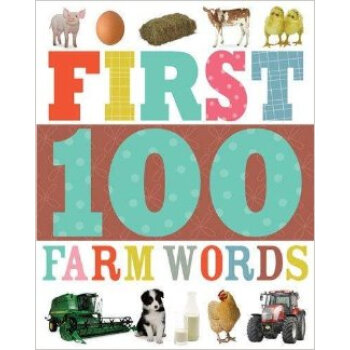
![What Was the Age of the Dinosaurs? [平装] [8-12岁] pdf epub mobi 电子书 下载](https://pic.tinynews.org/19853385/58a7a93bN9cd83b2d.jpg)
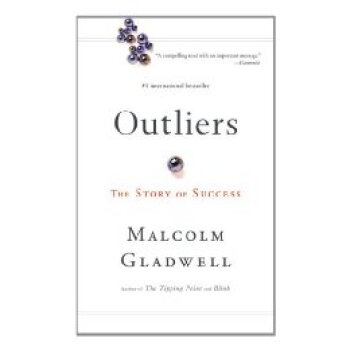
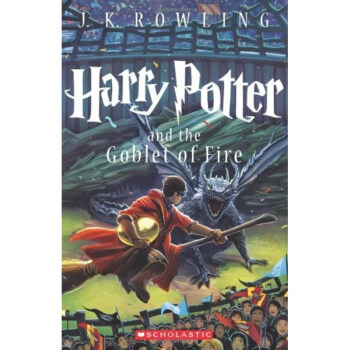
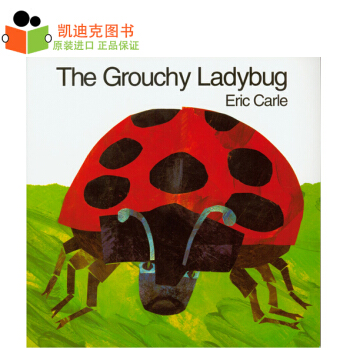



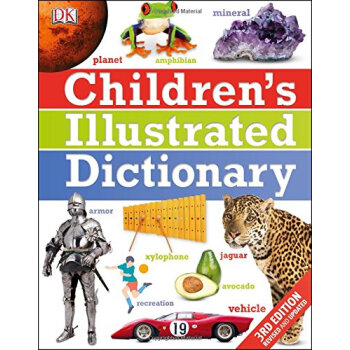

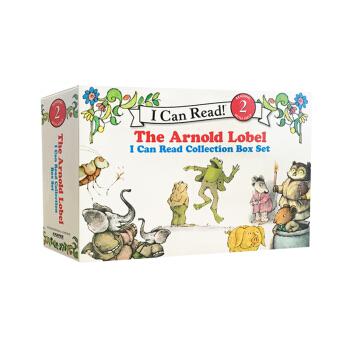
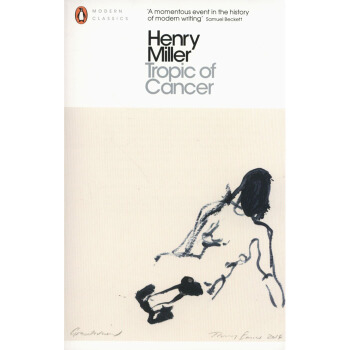
![[现货]进口英文原版 Tuesdays with Morrie 相约星期二 英文版 pdf epub mobi 电子书 下载](https://pic.tinynews.org/10013448474/591aa89fNe1e38902.jpg)
![[现货]英文原版 礼服大历史全集 The Costume History 进口图书 pdf epub mobi 电子书 下载](https://pic.tinynews.org/10121349873/56a5a970N0990b8b9.jpg)
